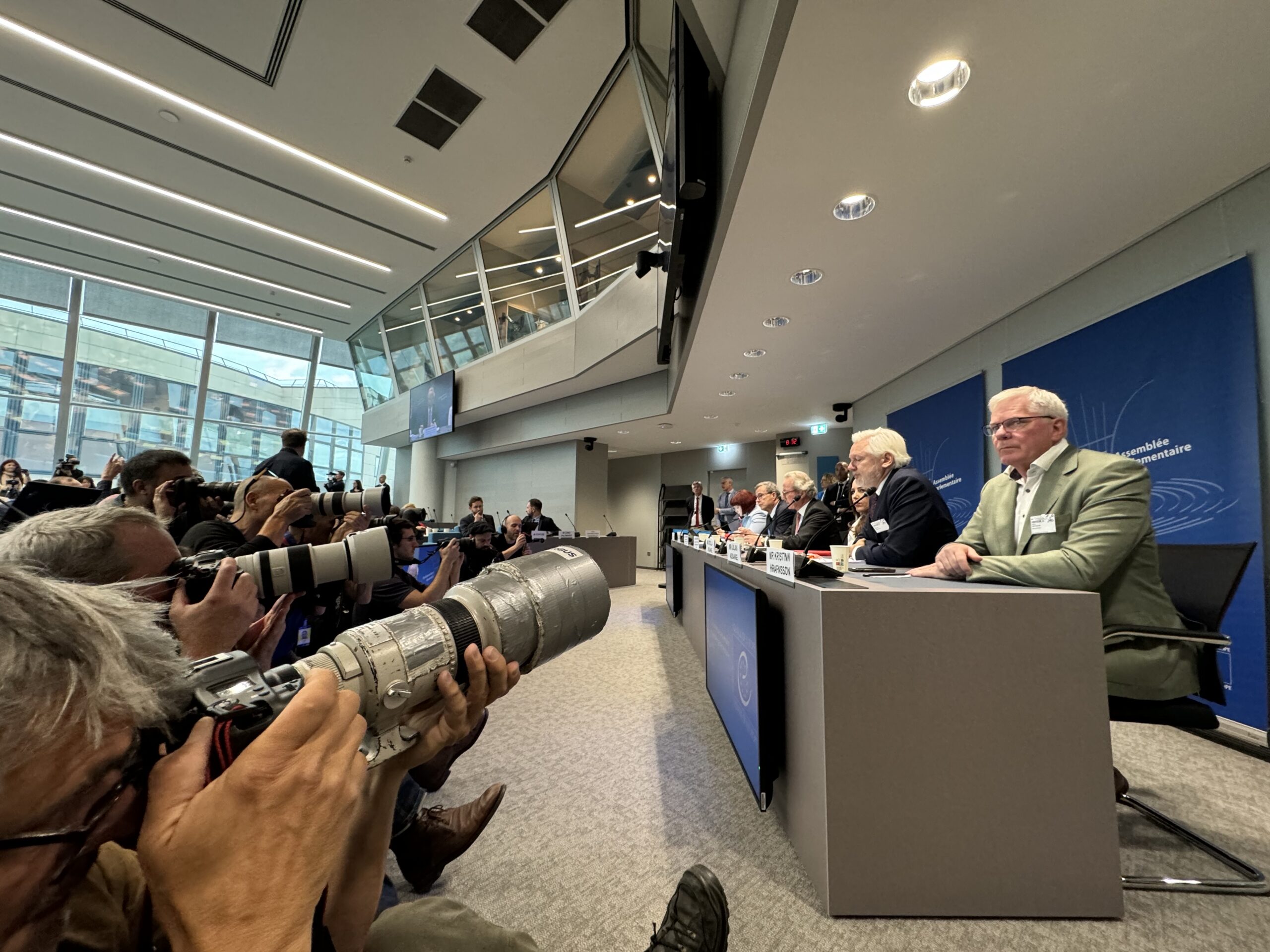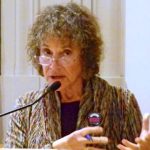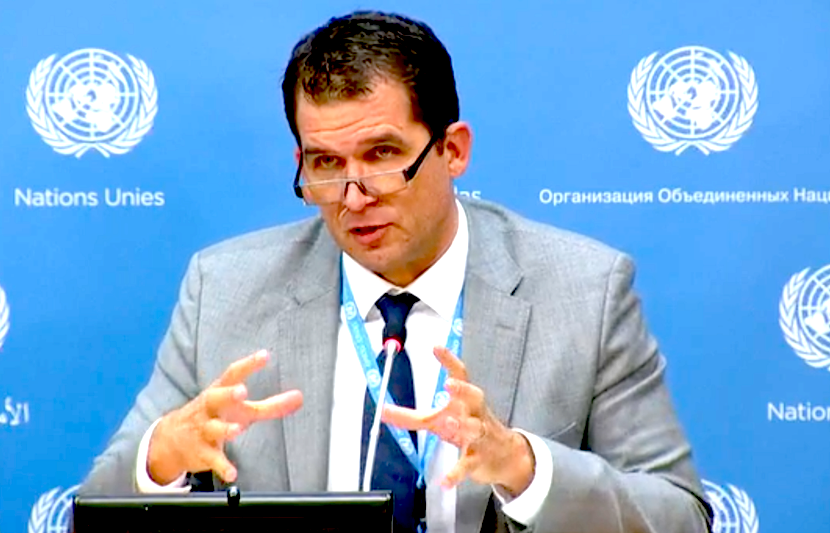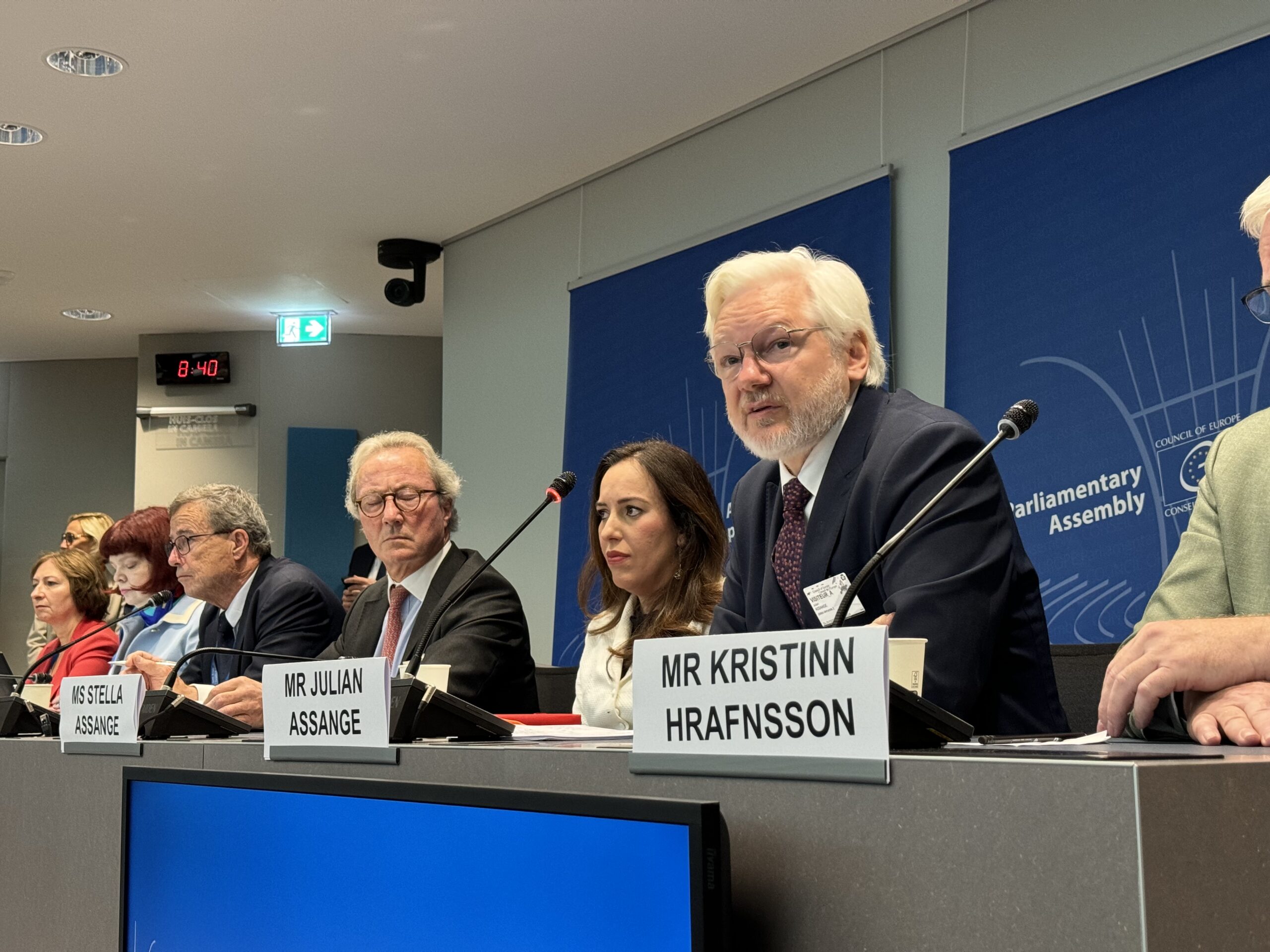Marjorie Cohn reports on the Parliamentary Assembly’s “political prisoner” resolution, including its alarm that the C.I.A. “was allegedly planning to poison or even assassinate” the WikiLeaks publisher.

Julian Assange testifying in Strasbourg on Oct. 1. (Barnaby Nerberka)
 The Parliamentary Assembly of the Council of Europe (PACE), Europe’s foremost human rights body, overwhelmingly adopted a resolution on Oct. 2 formally declaring WikiLeaks founder Julian Assange a political prisoner.
The Parliamentary Assembly of the Council of Europe (PACE), Europe’s foremost human rights body, overwhelmingly adopted a resolution on Oct. 2 formally declaring WikiLeaks founder Julian Assange a political prisoner.
The Council of Europe, which represents 64 nations, expressed deep concern at the harsh treatment suffered by Assange, which has had a “chilling effect” on journalists and whistleblowers around the world.
In the resolution, PACE notes that many of the leaked files WikiLeaks published “provide credible evidence of war crimes, human rights abuses, and government misconduct.” The revelations also “confirmed the existence of secret prisons, kidnappings and illegal transfers of prisoners by the United States on European soil.”
According to the terms of a plea deal with the U.S. Department of Justice, Assange pled guilty on June 25 to one count of conspiracy to obtain documents, writings and notes connected with the national defense under the U.S. Espionage Act.
Without the deal, he was facing 175 years in prison for 18 charges in an indictment filed by the Trump administration and pursued by the Biden administration, stemming from WikiLeaks’ publication of evidence of war crimes committed by the U.S. in Iraq, Afghanistan and Guantánamo Bay. After his plea, Assange was released from custody with credit for the five years he had spent in London’s maximum-security Belmarsh Prison.
The day before PACE passed its resolution, Assange delivered a powerful testimony to the Council of Europe’s Committee on Legal Affairs and Human Rights. This was his first public statement since his release from custody four months ago, after 14 years in confinement – nine in the Ecuadorian embassy in London and five in Blemish. “Freedom of expression and all that flows from it is at a dark crossroads,” Assange told the parliamentarians.
‘Chilling Effect & Climate of Self-Censorship’

HM Prison Belmarsh. (Anders Sandberg/Flickr, CC BY-NC 2.0)
The resolution says that “the disproportionately harsh charges” the U.S. filed against Assange under the Espionage Act, “which expose him to a risk of de facto life imprisonment,” together with his conviction “for — what was essentially — the gathering and publication of information,” justify classifying him as a political prisoner, under the definition set forth in a PACE resolution from 2012 defining the term. Assange’s five-year incarceration in Belmarsh Prison was “disproportionate to the alleged offence.”
Noting that Assange is “the first publisher to be prosecuted under [the Espionage Act] for leaking classified information obtained from a whistleblower,” the resolution expresses concern about the “chilling effect and a climate of self-censorship for all journalists, editors and others who raise the alarm on issues that are essential to the functioning of democratic societies.”
The resolution also notes that “information gathering is an essential preparatory step in journalism” which is protected by the right to freedom of expression guaranteed by the European Court of Human Rights.
The resolution cites the conclusion of Nils Melzer, U.N. special rapporteur on torture and other cruel, inhuman or degrading treatment or punishment, that Assange had been exposed to “increasingly severe forms of cruel, inhuman or degrading treatment or punishment, the cumulative effects of which can only be described as psychological torture.”

Nils Melzer. (UN Photo)
Condemning “transnational repression,” PACE was “alarmed by reports that the C.I.A. was discreetly monitoring Mr. Assange in the Ecuadorian embassy in London and that it was allegedly planning to poison or even assassinate him on British soil.”
The C.I.A. has raised the “state secrets” privilege in a civil lawsuit filed by two attorneys and two journalists over that illegal surveillance.
In the U.S., “the concept of state secrets is used to shield executive officials from criminal prosecution for crimes such as kidnapping and torture, or to prevent victims from claiming damages,” the resolution notes. But “the responsibility of State agents for war crimes or serious human rights violations, such as assassinations, enforced disappearances, torture or abductions, does not constitute a secret that must be protected.”
Moreover, the resolution expresses deep concern that, according to publicly available evidence, no one has been held to account for the war crimes and human rights violations committed by U.S. state agents and decries the “culture of impunity.”
The resolution says there is no evidence anyone has been harmed by WikiLeaks’ publications and “regrets that despite Mr Assange’s disclosure of thousands of confirmed — previously unreported — deaths by U.S. and coalition forces in Iraq and Afghanistan, he has been the one accused of endangering lives.”
Assange’s Testimony

Assange testifying before the Council of Europe Committee. (Barnaby )
The testimony Assange provided to the committee was poignant. “I eventually chose freedom over realizable justice … Justice for me is now precluded,” Assange testified. “I am not free today because the system worked. I am free today after years of incarceration because I pled guilty to journalism.”
He added, “I pled guilty to seeking information from a source. I pled guilty to obtaining information from a source. And I pled guilty to informing the public what that information was.” His source was whistleblower Chelsea Manning, who provided the documents and reports to WikiLeaks. “Journalism is not a crime,” Assange said. “It is a pillar of a free and informed society.”
Assange described the transition from the years he spent in a maximum-security prison to testifying before the European parliamentarians as a “profound and surreal shift.”
Speaking of his isolation for years in a small cell, he said “it strips away one’s sense of self, leaving only the raw essence of existence.”
Assange said,
“I’m yet not fully equipped to speak about what I have endured. The relentless struggle to stay alive, both physically and mentally. Nor can I speak yet about the death by hanging, murder and medical neglect of my fellow prisoners.”
Perhaps the most infamous publication by WikiLeaks was the 2007 “Collateral Murder” video, which depicts a U.S. Army Apache attack helicopter crew targeting and killing 12 unarmed civilians in Baghdad, including two Reuters journalists, as well as a man who came to rescue the wounded.
The release of that video “stirred public debate,” Assange testified. “Now, every day there are live streaming horrors from the wars in Ukraine and the war in Gaza.” He cited “hundreds of journalists” killed in those wars.
Addressing the danger journalists face, Assange declared, “The criminalization of news-gathering activities is a threat to investigative journalism everywhere. I was formally convicted by a foreign power for asking, for receiving and publishing truthful information about that power.” He noted, “The fundamental issue is simple. Journalists should not be prosecuted for doing their jobs.”
Assange predicted “more impunity, more secrecy, more retaliation for telling the truth and more self-censorship” in the future. “Journalists must be activists for the truth,” he said, mentioning the importance of “journalistic solidarity.”
Although Assange expected some sort of legal harassment as a result of WikiLeaks’ publications and was ready “to fight for that,” he said “my naivete was believing in the law. When push comes to shove, laws are just pieces of paper, and they can be reinterpreted for political expediency.”
Assange observed that laws are made by the ruling class, who simply reinterpret them when the rules don’t serve their ends. Describing the legal process in his case, Assange noted that “all judges, whether they were finding in my favor or not in the United Kingdom, showed extraordinary deference to the United States.”
PACE Urges US to Investigate War Crimes

Plenary chamber of PACE. (Adrian Grycuk/Wikimedia Commons, CC BY-SA 3.0)
The resolution calls on the U.S., the U.K., the member and observer States of the Council of Europe, and media outlets to take actions to address its concerns.
It calls on the U.S., an observer State, to reform the Espionage Act of 1917 to exclude from its operation journalists, editors and whistleblowers who disclose classified information with the aim of informing the public of serious crimes, such as torture or murder. In order to obtain a conviction for violation of the Act, the government should be required to prove a malicious intent to harm national security. It also calls on the U.S. to investigate the allegations of war crimes and other human rights violations exposed by Assange and Wikileaks.
PACE called on the U.K. to review its extradition laws to exclude extradition for political offenses, as well as conduct an independent review of the conditions of Assange’s treatment while at Belmarsh, to see if it constituted torture, or inhuman or degrading treatment.
In addition, the resolution urges the States of the Council of Europe to further improve their protections for whistleblowers, and to adopt strict guidelines to prevent governments from classifying documents as defense secrets when not warranted.
Finally, the resolution urges media outlets to establish rigorous protocols for handling and verifying classified information, to ensure responsible reporting and avoid any risk to national security and the safety of informants and sources.
Although PACE doesn’t have the authority to make laws, it can urge the States of the Council of Europe to take action. Since Assange never had the opportunity to litigate the denial of his right to freedom of expression, the resolution of the Council of Europe is particularly significant as he seeks a pardon from U.S. President Joe Biden.
Marjorie Cohn is professor emerita at Thomas Jefferson School of Law, dean of the People’s Academy of International Law and past president of the National Lawyers Guild. She sits on the national advisory boards of Assange Defense and Veterans For Peace. A member of the bureau of the International Association of Democratic Lawyers, she is the U.S. representative to the continental advisory council of the Association of American Jurists. Her books include Drones and Targeted Killing: Legal, Moral and Geopolitical Issues.
This article is from Truthout and reprinted with permission.
Views expressed in this article and may or may not reflect those of Consortium News.

Show Comments